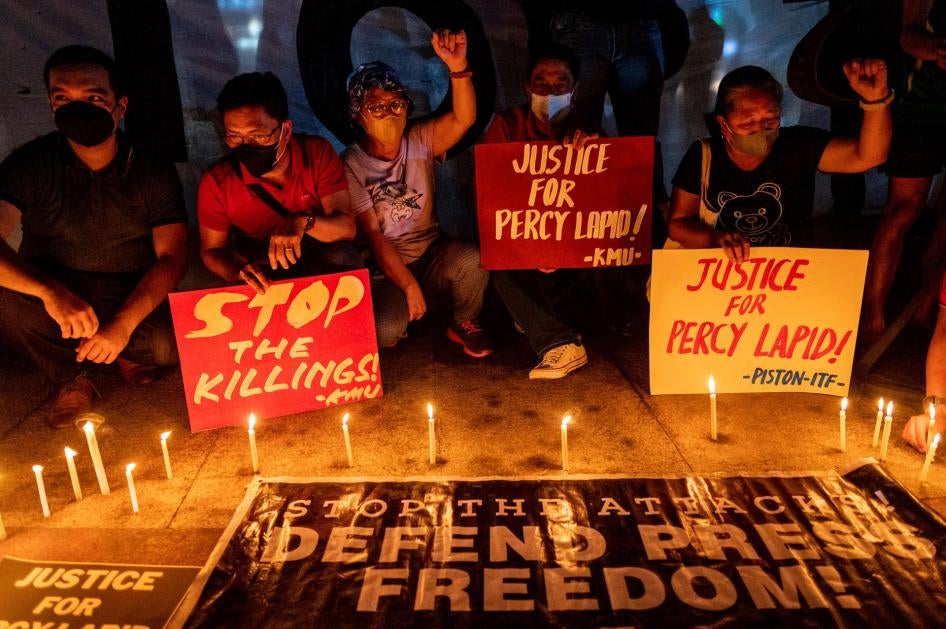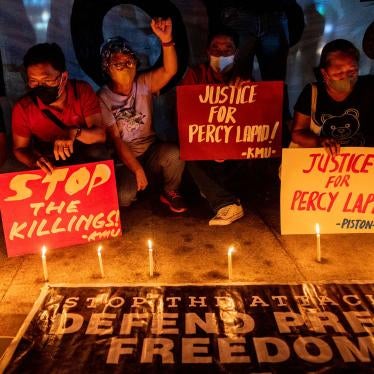The Philippine authorities responded with uncharacteristic speed to the fatal shooting of hard-hitting broadcast journalist Percival Mabasa, popularly known as Percy Lapid. Within a month, officials had brought charges against the alleged gunman and several others, including a top corrections bureau official for ordering the killing.
But the case also stands for grisly proof that many of the problems of the Philippine justice system remain.
Mabasa, whose commentaries were aired on radio and online, was shot dead by a motorcycle-riding gunman on October 3 near his home in Paranaque City, in the capital region of Metro Manila.
On October 17, the alleged gunman, Joel Escorial, surrendered and identified cohorts in the crime. These included Cristito Villamor Palaña, the alleged middleman in the contract to kill Mabasa. Hours after Palaña’s surrender, he was killed inside the New Bilibid Prison, which is run by the corrections bureau.
Among those subsequently implicated for both killings was the prison director, Gerald Bantag, an appointee of former president Rodrigo Duterte who has since been removed from his post. On November 7, the justice department’s National Bureau of Investigation filed murder charges against Bantag and several others.
Lapid, on his radio and online show in September, had reported critically on Bantag’s lifestyle. He alleged that Bantag owned a large house and at least 11 vehicles, and questioned how the prison director could afford those on a civil servant’s salary. The justice department said Lapid’s reporting was an angle they were pursuing as a possible motive in the case.
Since 1986, more than 200 journalists have been killed in the Philippines, mostly people working for radio stations in the provinces, not in the capital. Few cases have resulted in arrests, let alone been successfully prosecuted. The Philippines has had the dubious distinction of being one of the top countries over the years in the Committee to Protect Journalists’ “Impunity Index.”
The Mabasa investigation and prosecution could prove to be the impetus for the government of Philippine President Ferdinand Marcos Jr. to take attacks against journalists more seriously. Without accountability for such attacks, there can’t be genuine media freedom in the Philippines.








